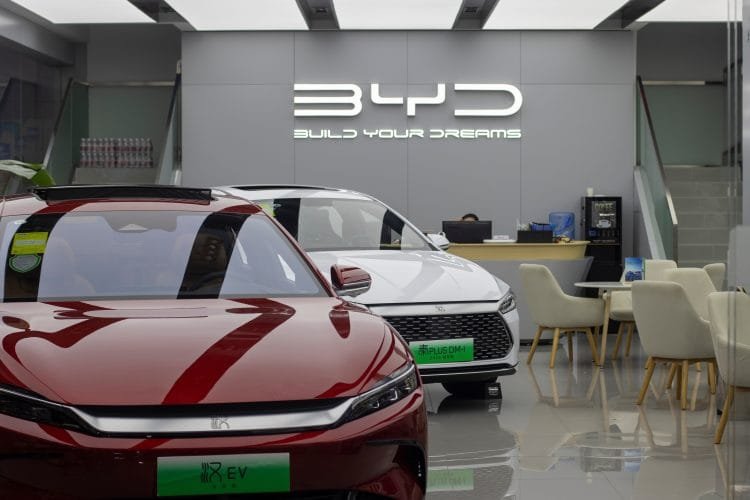
The Chinese government has launched an online portal to address auto supplier payment complaints and improve transparency.
China is the world’s largest automobile market and manufacturer. This vast industry relies on countless suppliers to manufacture vehicles, who supply various components, materials and services. And timely and fair payment to these suppliers is vital for a healthy supply chain and sustainable growth of the industry. However, there have long been complaints in China regarding delayed payments or unfair payment terms by automobile manufacturers to suppliers. To address these problems and protect the interests of suppliers, the Chinese government has now opened a new online complaint channel. Background Payment Problems in the Automobile Industry China’s automobile industry has seen rapid growth, especially in the electric vehicle (EV) sector. And this growth depends on a strong and efficient supply chain. However, many suppliers have faced delayed payments or unfair payment terms from auto manufacturers in the past. These and other problems can arise for various reasons.
Complex supply chain network
The automobile supply chain is extremely complex. And which involves suppliers at multiple levels. This complexity can cause confusion or delays in payment processes. As well as market competition, which is that the automobile market in China is highly competitive. Under pressure to keep prices low, some auto manufacturers may pressure their suppliers to tighten payment terms or delay payments. As well as managing cash flow, which can be a significant challenge, especially for small and medium-sized suppliers. And when large auto manufacturers delay payments. So it can have a serious impact on the operations and stability of these suppliers.
As well as the complex network of supply chain, which is that the automobile supply chain is extremely complex. And which involves suppliers at multiple levels. Also, this complexity can cause confusion or delays in payment processes. And contract disputes, which sometimes payment disputes can arise due to ambiguity of contracts or their violations. And talking about the impact of the pandemic, global crises like the COVID-19 pandemic have disrupted supply chains. Which has created uncertainty in the production and payment cycles.
Rare Earth Crisis Worsens China Auto Supplier Complaints
The recent restrictions imposed by China on the export of rare earth minerals, especially magnets, have affected the automobile industry. The shortage of these minerals is increasing production costs and putting additional pressure on the supply chain. Which can also indirectly affect supplier payments. And due to these problems, suppliers face financial difficulties. Which can affect their production capacity, ability to invest in research and development and ultimately the innovation capability of the entire automobile industry.
New online complaint channel inaugurated
To address these challenges, the Chinese government has opened an online channel for registering complaints related to payments to suppliers by automobile manufacturers. This initiative has been taken by the concerned government departments like the Ministry of Industrial and Information Technology (MIIT) of China. The main objective of this channel is Providing an accessible platform for suppliers This online channel provides suppliers a way to register their complaints easily and efficiently. Earlier they had to go through different channels which was often cumbersome and time consuming. Also increasing transparency which the online system can help track the status of complaints and bring more transparency to the process.
Also quick resolution of problems So the government aims to resolve complaints received through this channel quickly and effectively thereby reducing financial difficulties caused by payment disputes. And preventing unethical practices This channel will encourage auto manufacturers to make timely payments and follow fair trade practices. And it can also pave the way for punitive action for unfair payment terms or delays. Also strengthening the supply chain which gives stability to suppliers due to timely payments. So they can improve their production capacity and quality. And it helps in strengthening the entire automobile supply chain. Also promoting healthy growth of the industry which happens when suppliers are paid properly and on time. So they are able to innovate and invest, thereby contributing to the healthy and sustainable growth of the entire industry.
Challenges Facing China’s Auto Supplier Complaint System
While this is a positive step, there will also be some challenges in the successful implementation of this initiative as well as the efficiency of implementation. How quickly and effectively complaints are processed. And this will be a key factor. If the process is slow or inefficient, then the trust of suppliers can be eroded. Which will be important in terms of accountability and enforcement and making sure that auto manufacturers actually comply with the rules and pay.
The government will need to put in place strong enforcement mechanisms to make sure that the complaint channel is not just a symbolic measure. As well as access to smaller suppliers which will be important to make sure that even smaller suppliers are aware of this channel and feel comfortable using it, especially if they have limited technical knowledge. Suppliers need to ensure that their complaints remain confidential and that they do not face any kind of retaliation from the auto manufacturer for filing a complaint. In addition to supporting the legal framework, a strong legal framework must back the complaint channel to effectively resolve payment disputes.
And you can conclude that
The opening of an online channel by China for complaints on supplier payments to automobile manufacturers is an important and welcome move. It reflects the Chinese government’s commitment to promoting fairness, transparency and sustainability in its industries. If implemented effectively, this initiative can not only protect the interests of suppliers but also contribute significantly to the overall health and competitiveness of China’s huge automobile industry. It shows that the government is focused not only on economic growth but also on promoting healthy and ethical business practices within the industry. It will be interesting to see in the coming times how effectively this new channel works and how much it can improve China’s supply chains.




2 thoughts on “China Launches Complaint Portal for Auto Supplier Payments”